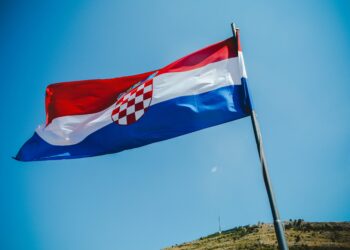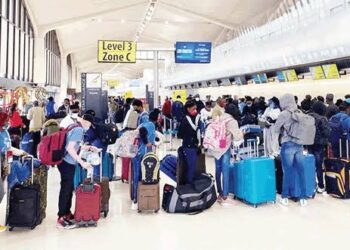Zagreb, the capital of Croatia, has announced its intention to invest €150,000 to support Croatian language education for foreign workers.
This will be implemented through the country’s Ministry of Labour, Pension System, Family, and Social Policy aimed at easing the integration process for foreign workers into the country.
This initiative was highlighted in a recent statement from the European Commission, which detailed that participants of the language program would start to receive support in the first quarter of 2024.
This support includes career guidance services provided through the Career Information and Counseling Centers (CISOK), located within the regional offices of the Croatian Employment Service.
According to Nairametrics, there are currently 17 such language centers across the country, designed to improve users’ skills necessary for lifelong career development.
The language courses will be offered by the Faculties of Humanities and Social Sciences located in Zagreb, Split, Rijeka, and Osijek.
About the language centres
The authority’s plans to offer concise educational courses in the Croatian language are tailored to crucial industries, such as construction, architecture, tourism, hospitality, trade, services, processing, and food sectors.
Additionally, this initiative will be incorporated into the education voucher system, which is designed for both employed and unemployed persons.
This system is a component of the National Operational Program for Human Resources, managed by the Croatian Employment Service.
The European Commission has indicated that the primary financial backing for these educational endeavours will come from employers, with additional support provided by local community contributions.
The courses are organized in collaboration with several institutions dedicated to teaching Croatian to non-native speakers, including the Croaticum—Centre for Croatian as a Second and Foreign Language in Zagreb, The Centre for Croatian Studies Abroad in Split, The Rijeka School of Croatian Studies in Rijeka, and the Department of Croatian Language and Literature in Osijek.
Background
The decision to allocate funds for Croatian language education for foreign workers stems from the increasing presence of international workers in the country.
- According to statistics from the Croatian Ministry of the Interior, from January 1 to November 30, 2023, a total of 160,464 residence and work permits were granted to foreign employees.
- The majority of these permits were distributed within the construction sector (63,632), with the tourism and hospitality sector (43,951) coming in second, followed by industry (22,249), transportation and communication (10,456), and trade (4,647).
- Concurrently, the Croatian Employment Service (HZZ) processed 160,445 applications for residence and work permits for foreign workers, out of a total of 190,696 applications received during this period.





















